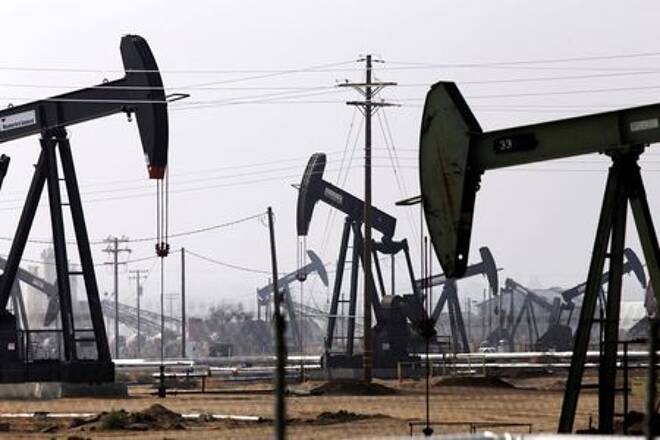Advertisement
Advertisement
Oil Prices Rebound, Edge Up Ahead of Next Week’s OPEC Meeting
By:
NEW YORK (Reuters) -U.S. crude prices settled higher on Friday, turning positive after an early decline, supported by expectations that the Organization of the Petroleum Exporting Countries, Russia and their allies, known as OPEC+, would maintain production cuts.
In this article:
However, Brent and U.S. crude oil benchmarks both declined on the week after reaching multi-year highs on Monday.
Brent crude rose 6 cents to settle at $84.38, while U.S. West Texas Intermediate crude rose 76 cents, or 0.9%, to $83.57.
“While more Iranian supply may come online, it looks like OPEC+ is unlikely to raise production which is giving strength to the market today,” said John Kilduff, partner at Again Capital LLC in New York.
Prices have been pressured since Wednesday by a report that U.S. crude stocks rose by 4.3 million barrels in the latest week. Iran has said talks on reviving the international deal on its nuclear programme will restart by the end of November, bringing it a step closer to boosting oil exports.
Crude has surged in 2021 as economies recover from the COVID-19 pandemic, but prices are on track to fall this week, with Brent facing its first weekly decline in about two months.
U.S. energy firms added oil and natural gas rigs for a 15th month in row in October as oil prices soared to fresh seven-year highs, spurred by rising oil prices to its highest since count April 2020, energy services firm Baker Hughes Co said in its closely followed report on Friday.
Exxon and Chevron are looking to add drilling rigs in the Permian shale basin after sharply cutting crews and output in the region last year, the companies said Friday. Chevron said it will add two drilling rigs and two completion crews this quarter.
On Thursday, Algeria said a crude output increase by OPEC+ in December should not exceed 400,000 barrels per day (bpd) because of market uncertainties and risks. The alliance, which is gradually unwinding last year’s record output cuts, meets on Nov. 4.
British and European gas prices continued to fall on Friday after Russian President Vladimir Putin said Russia could start pumping gas into European storage.
(Additional reporting by Alex Lawler; Additional reporting by Roslan Khasawneh in Singapore and Sonali Paul in Melbourne; Editing by David Goodman, David Holmes and David Gregorio)
About the Author
Reuterscontributor
Reuters, the news and media division of Thomson Reuters, is the world’s largest international multimedia news provider reaching more than one billion people every day. Reuters provides trusted business, financial, national, and international news to professionals via Thomson Reuters desktops, the world's media organizations, and directly to consumers at Reuters.com and via Reuters TV. Learn more about Thomson Reuters products:
Latest news and analysis
Advertisement
